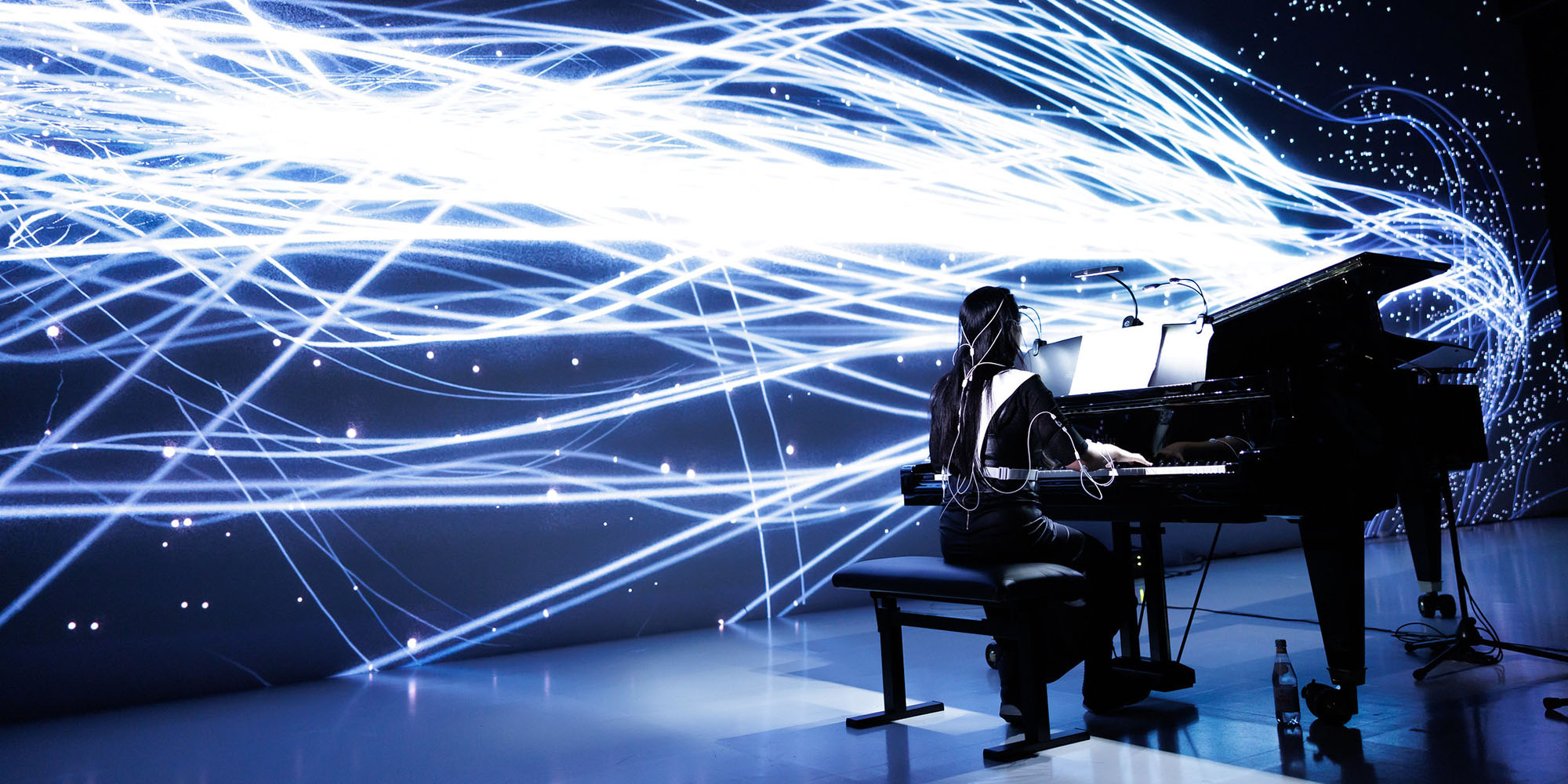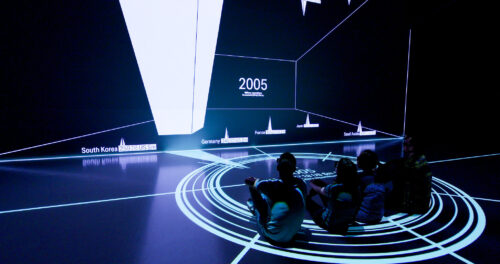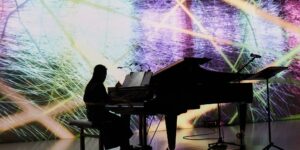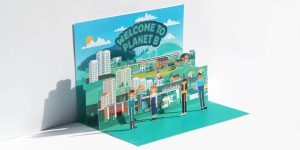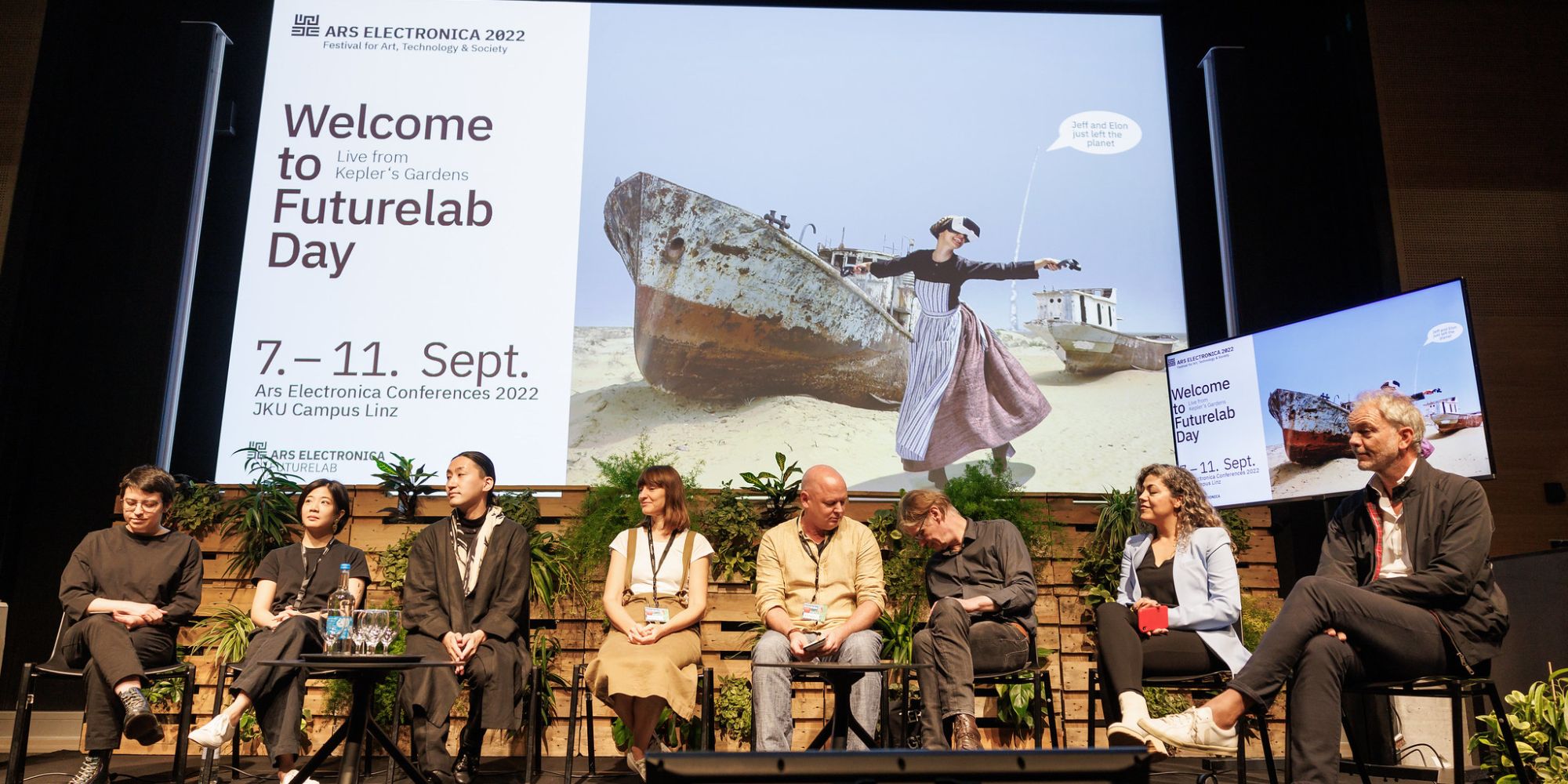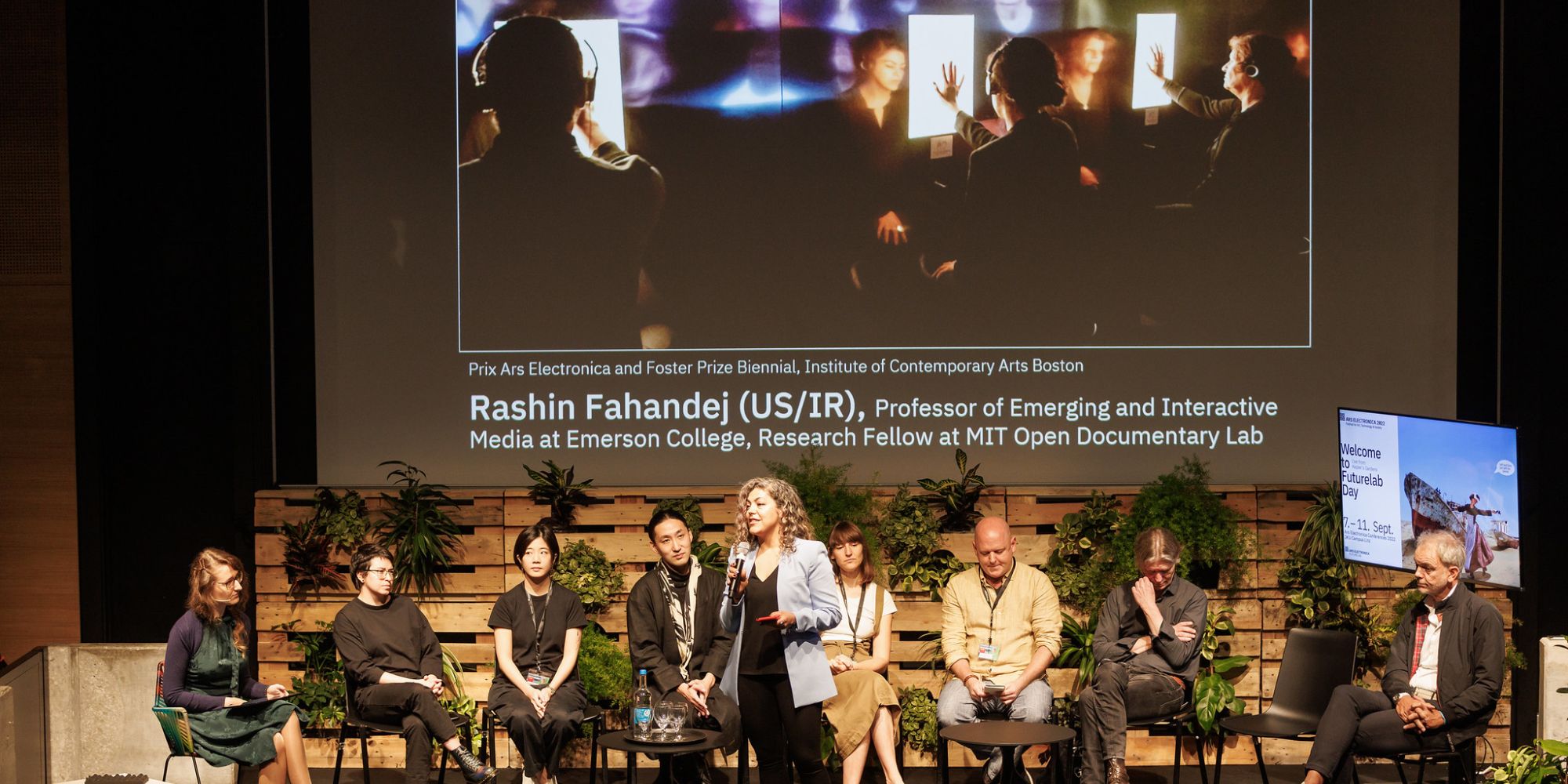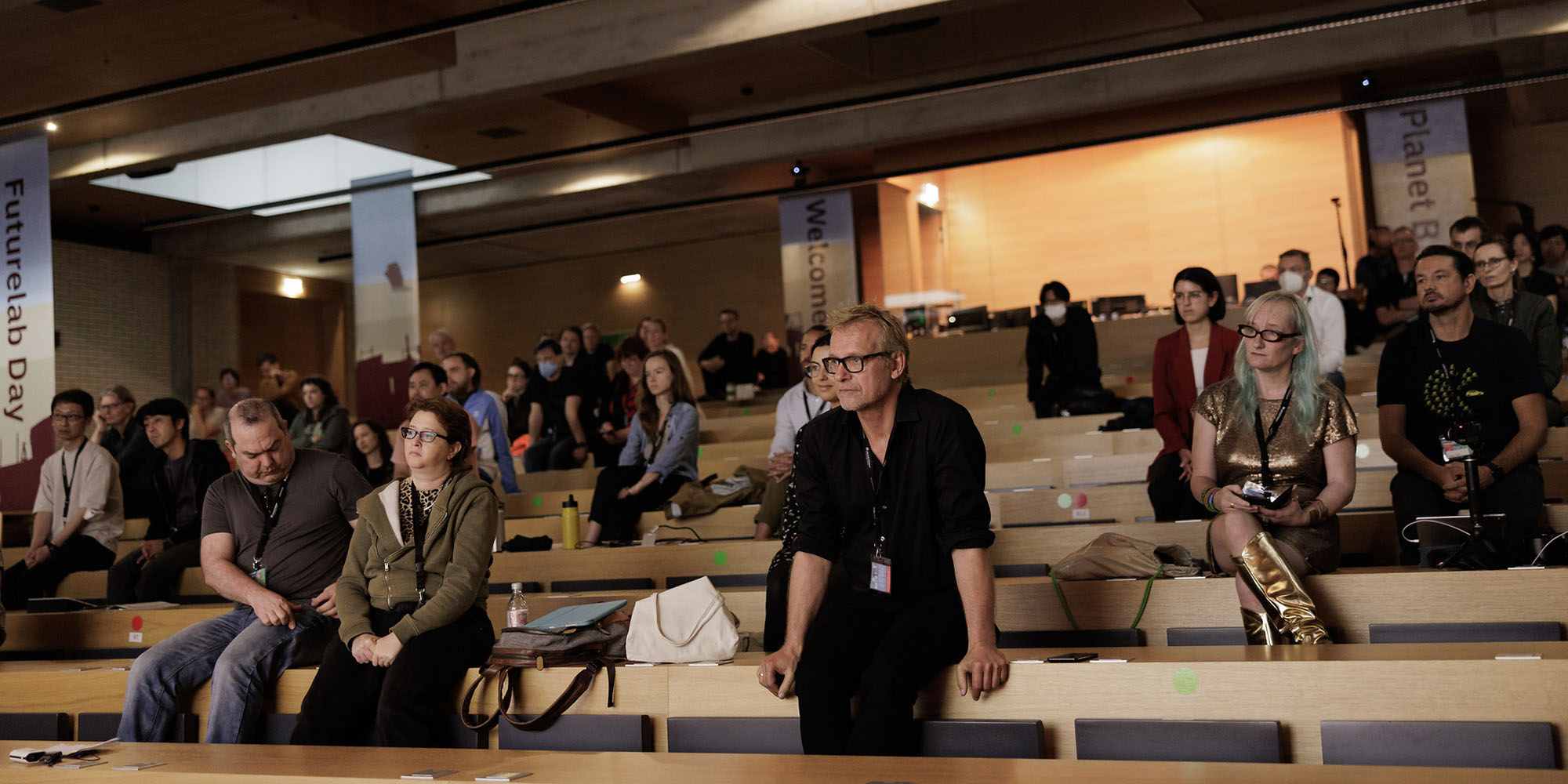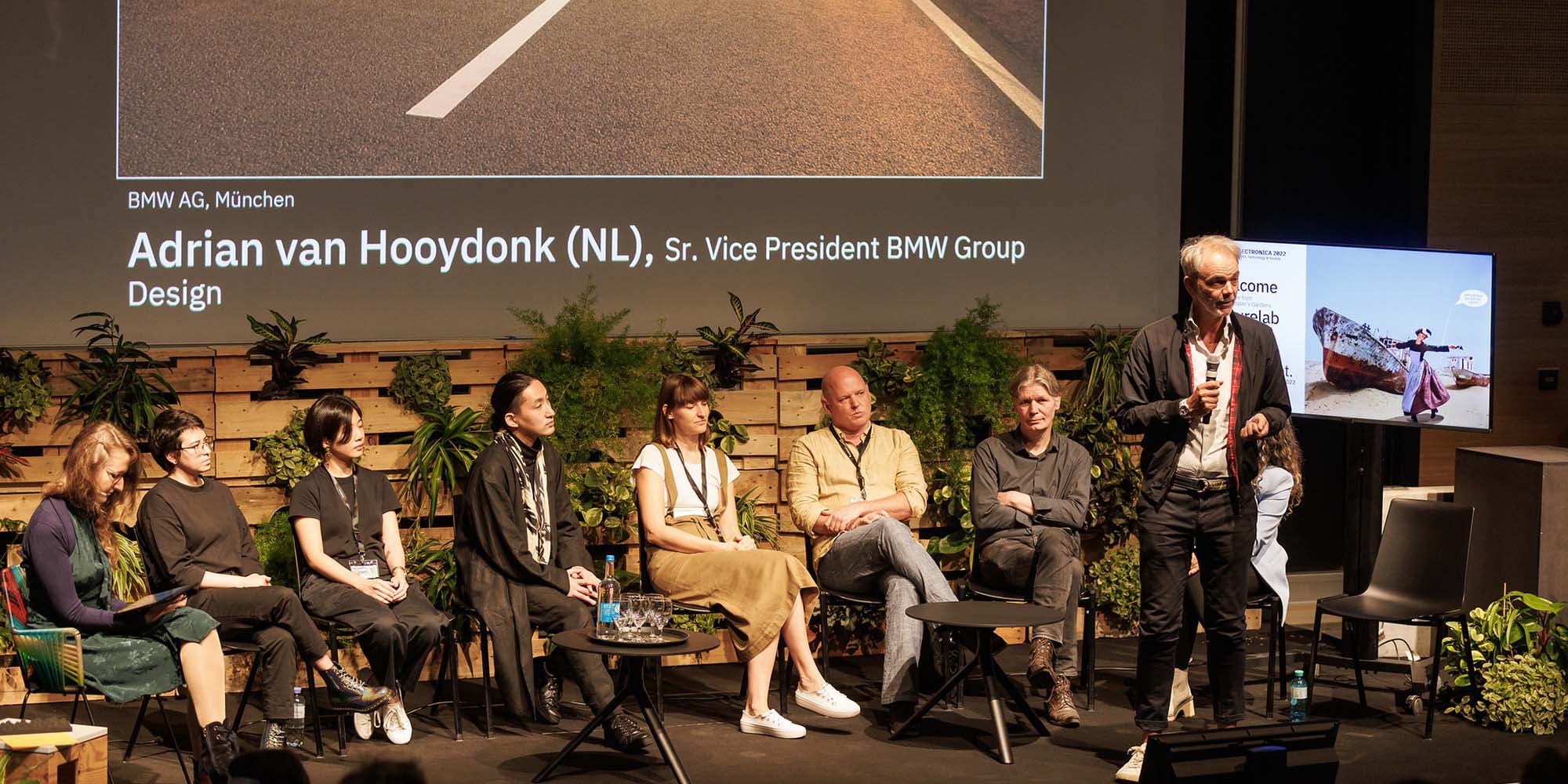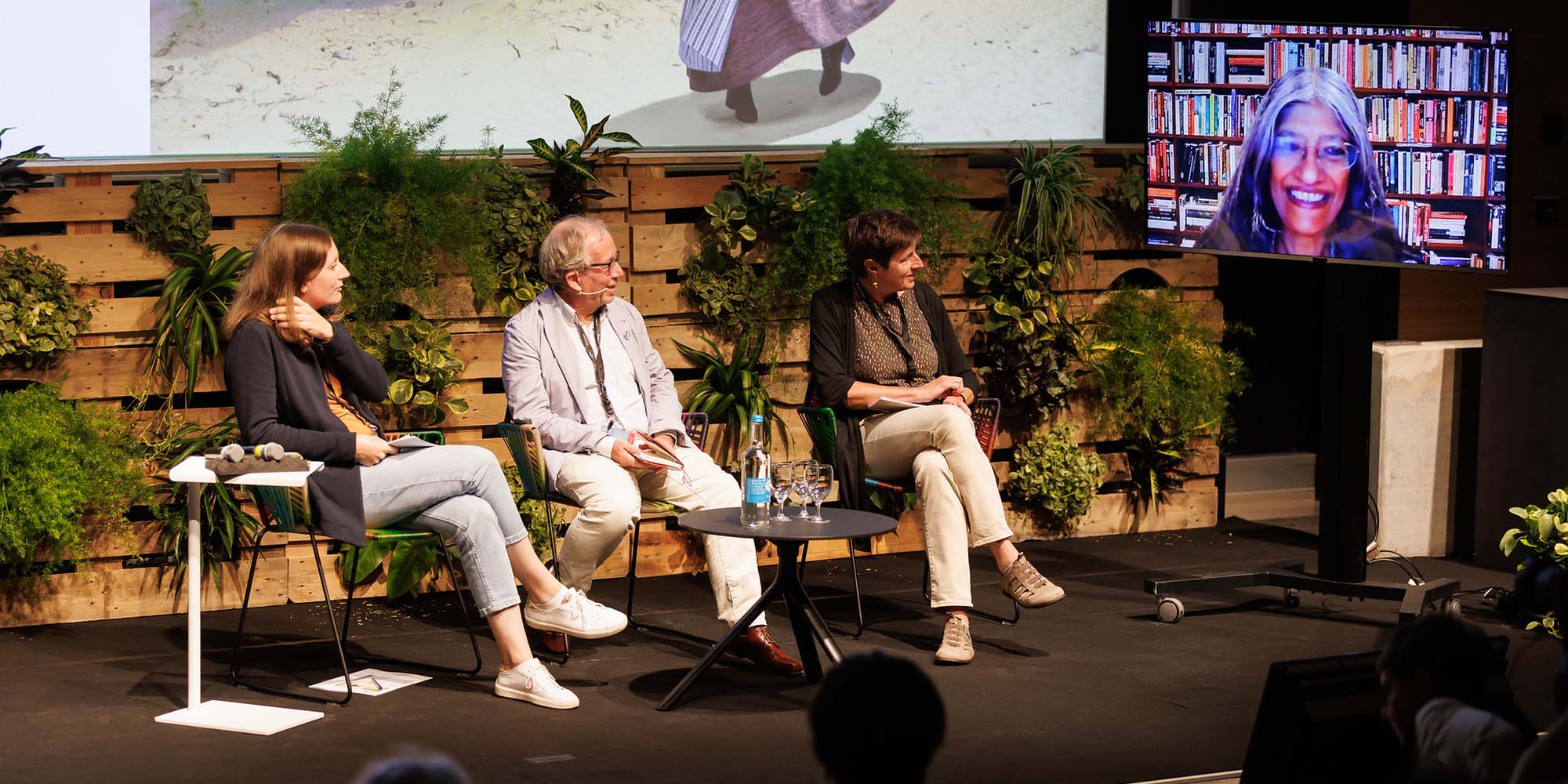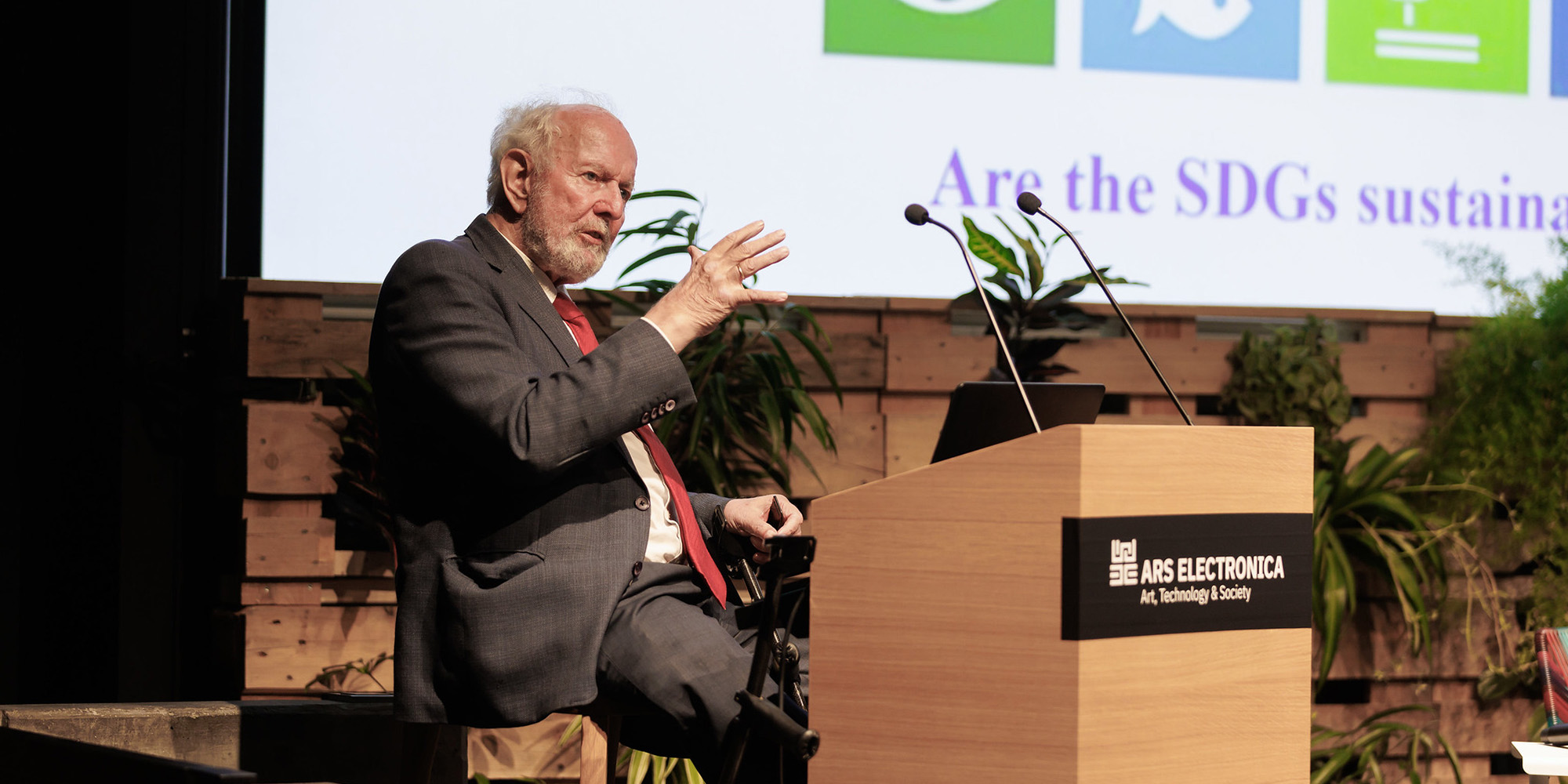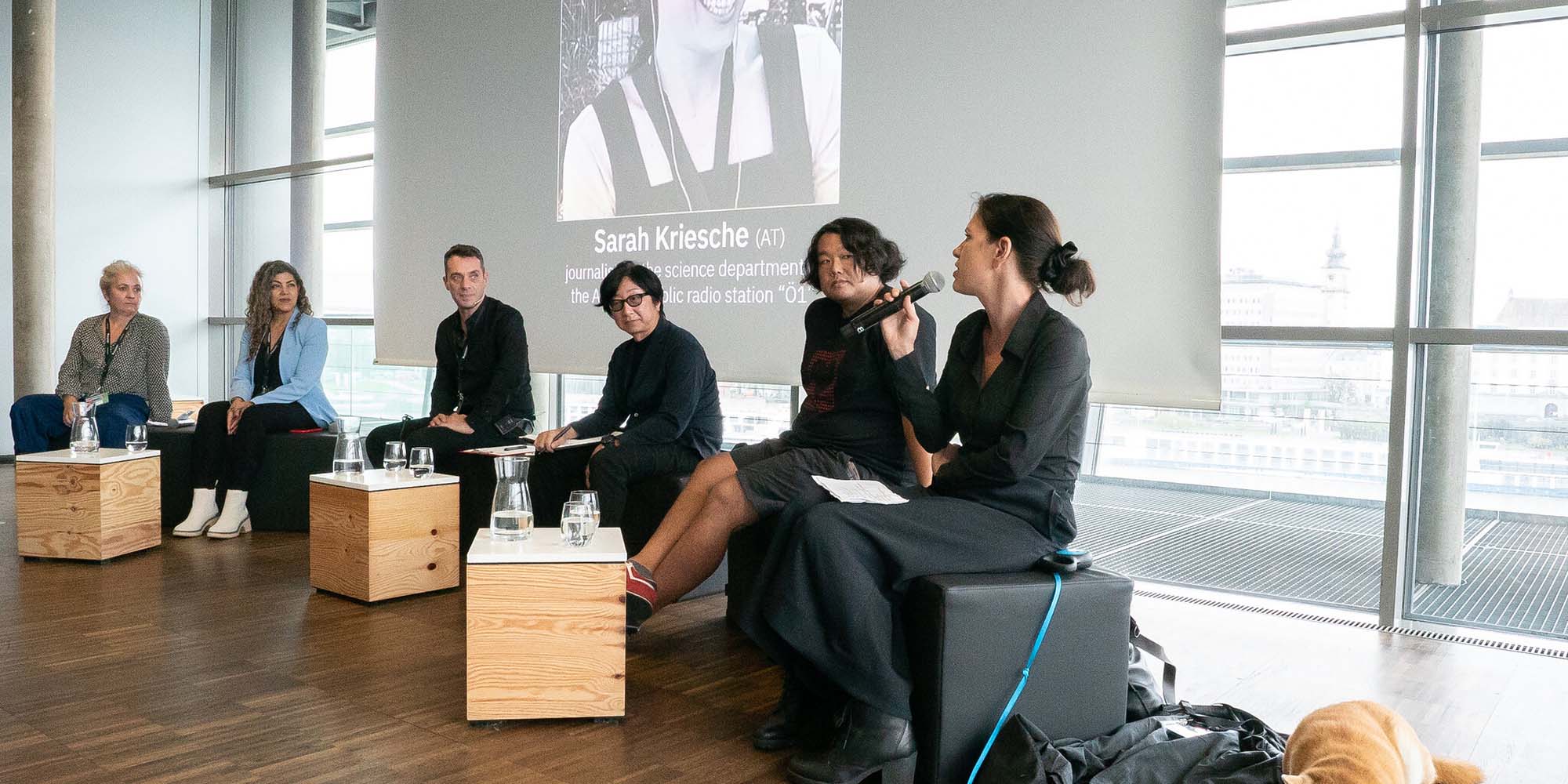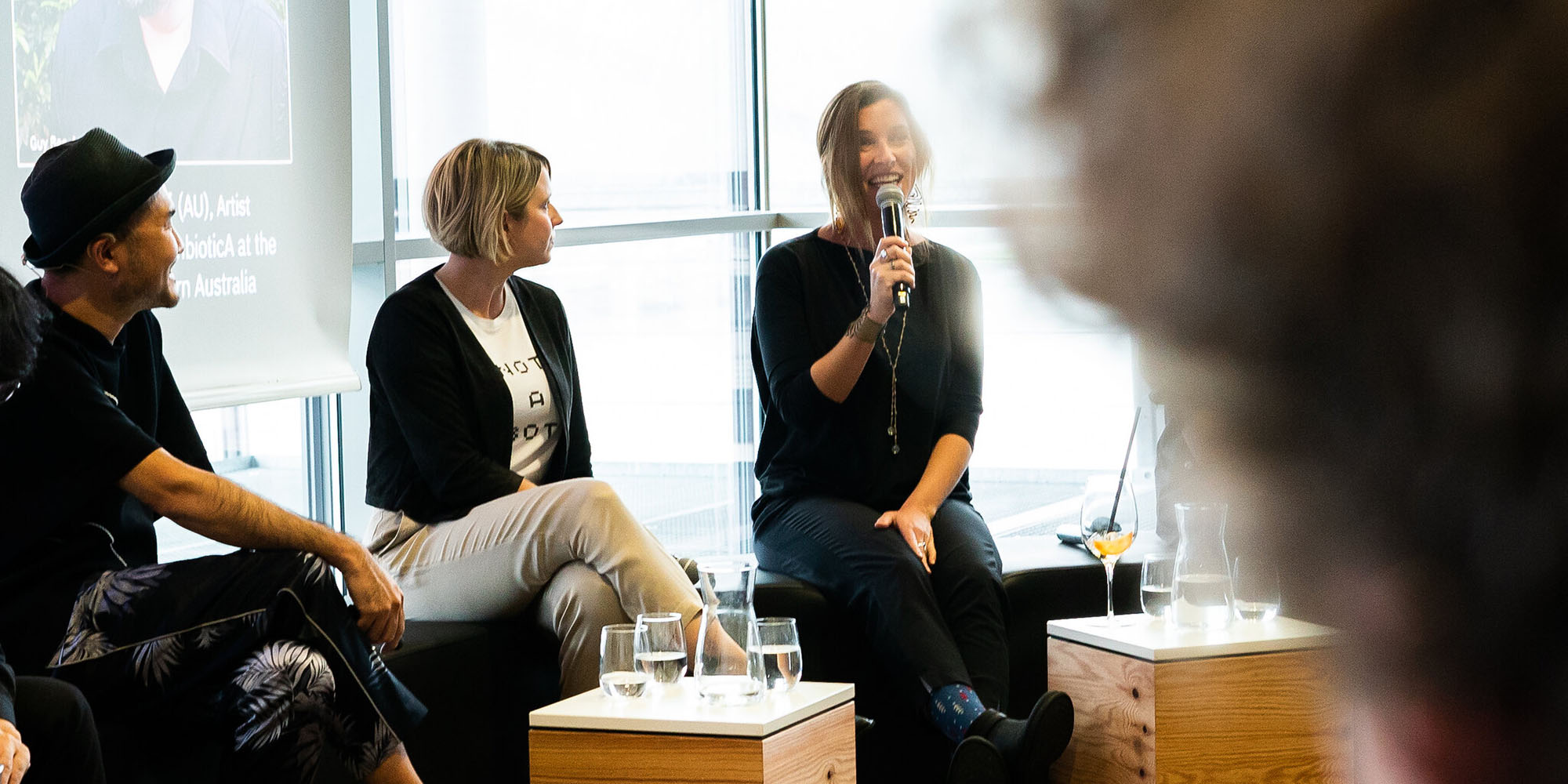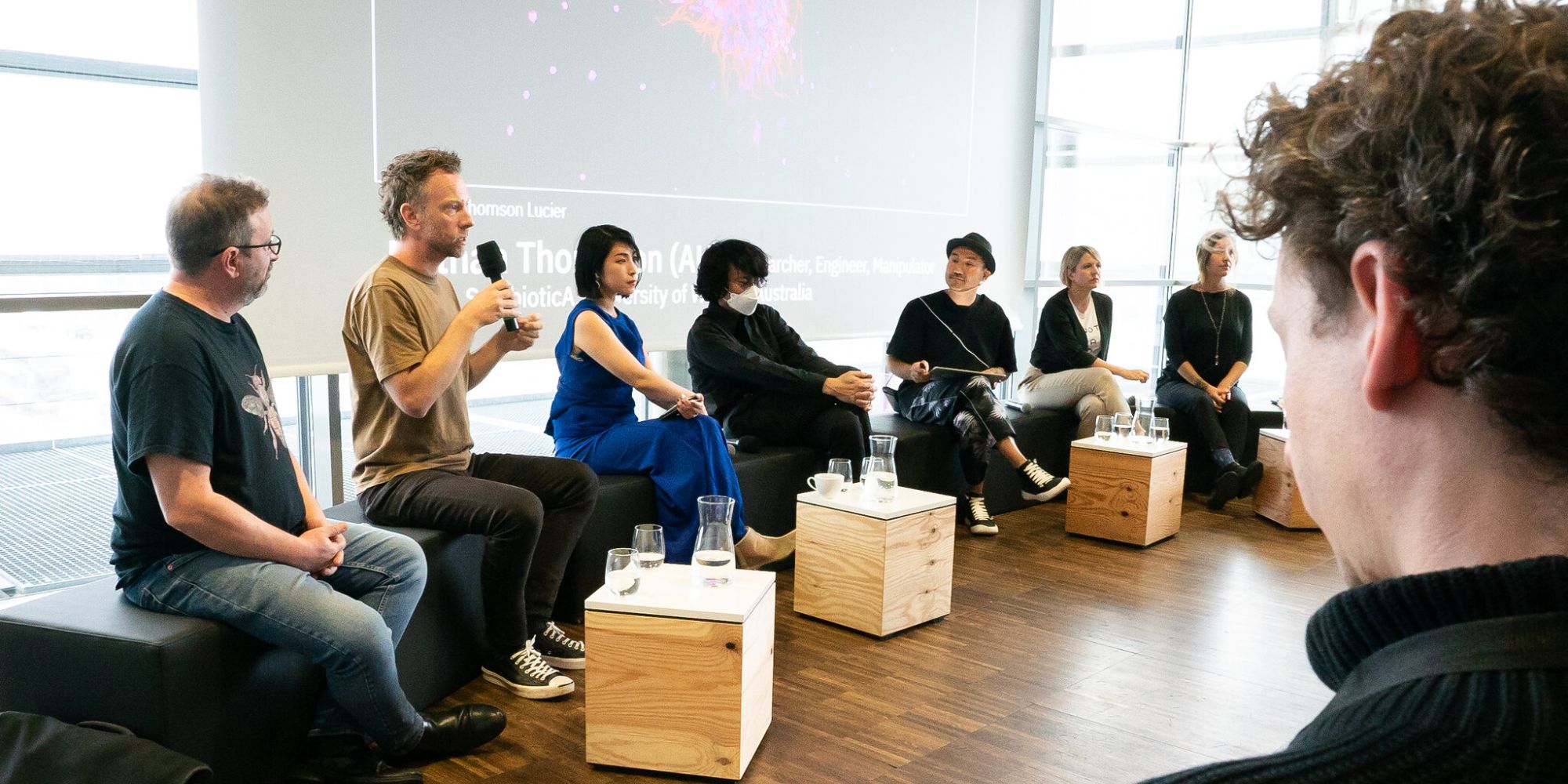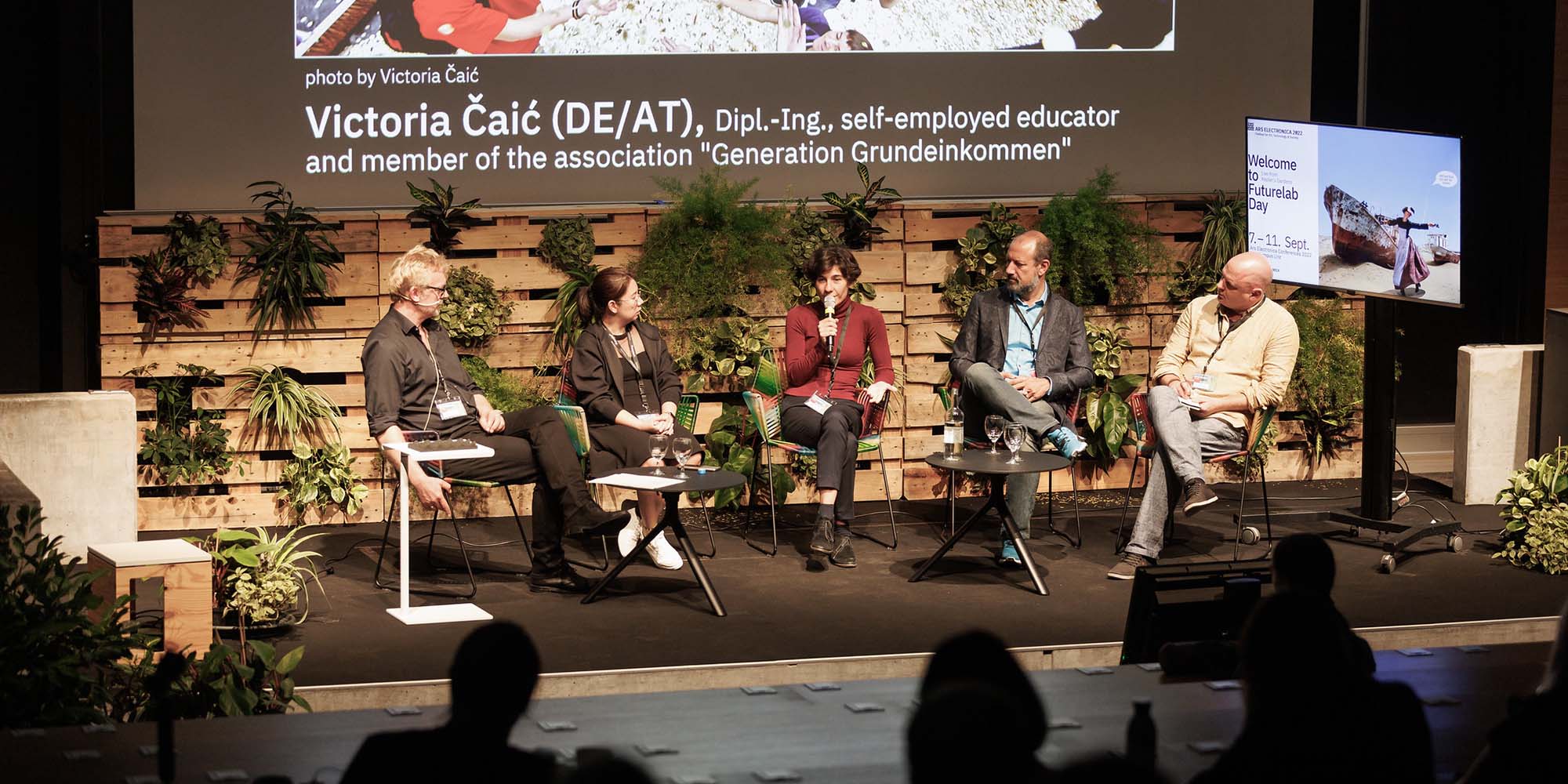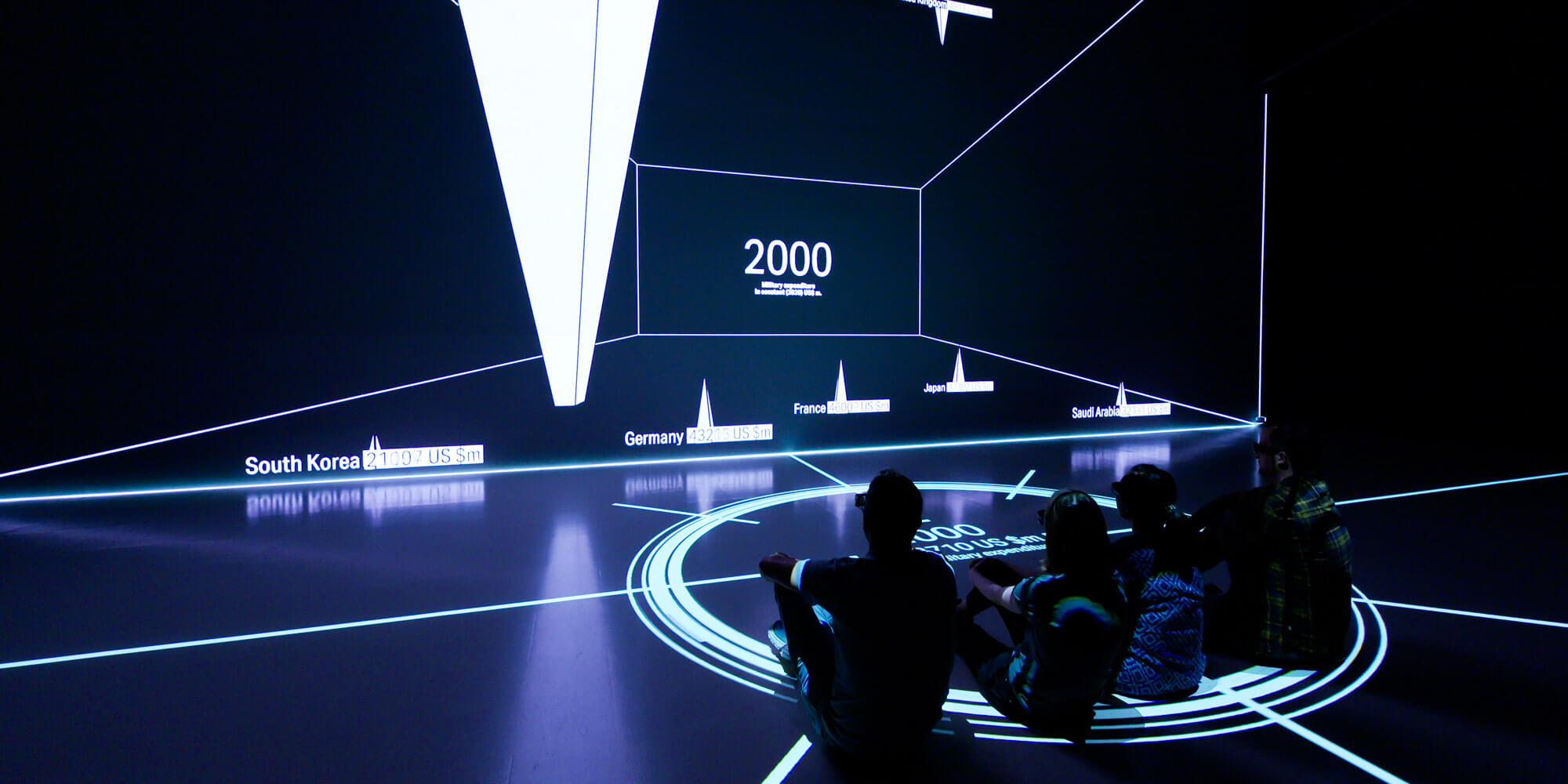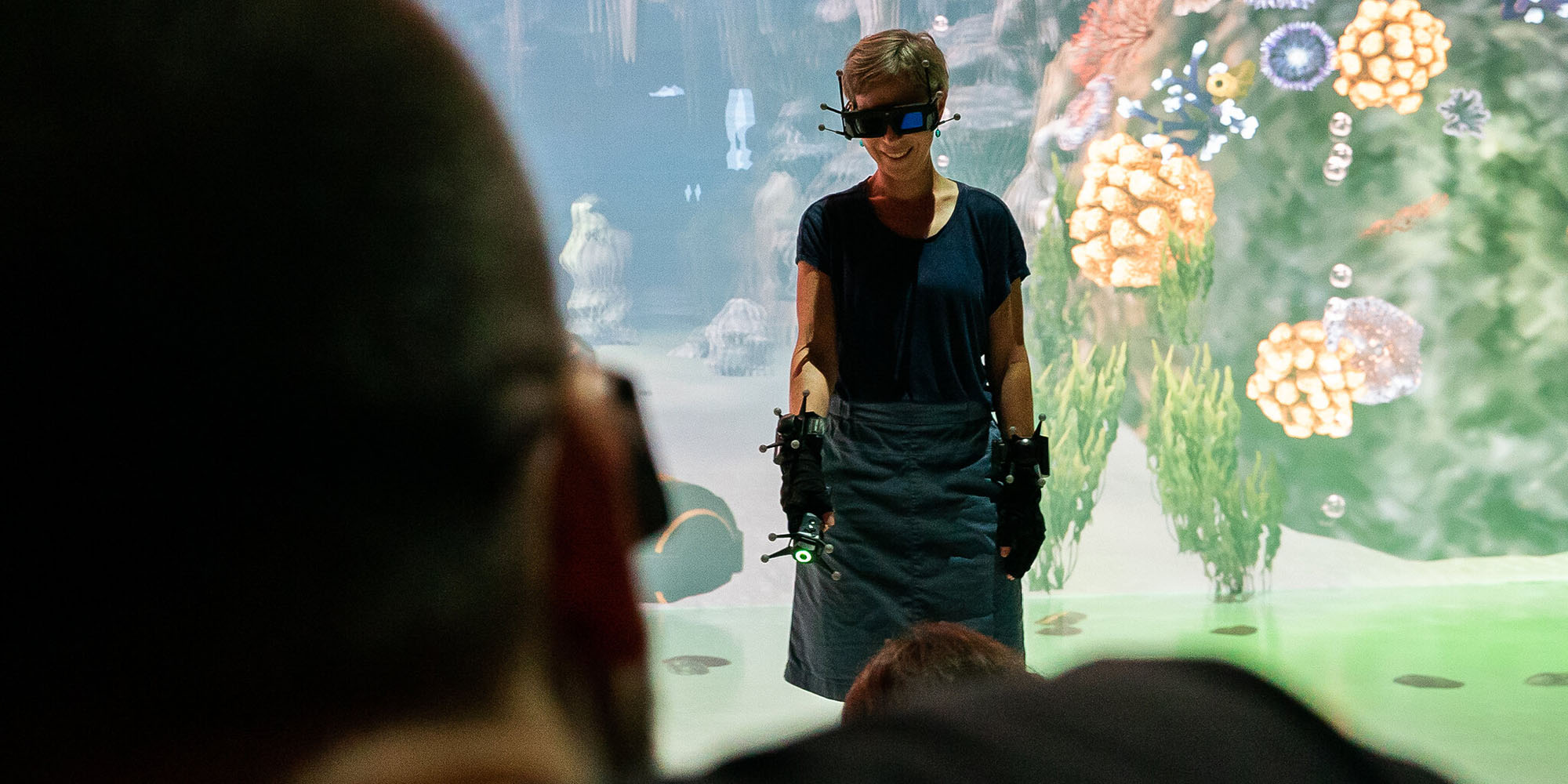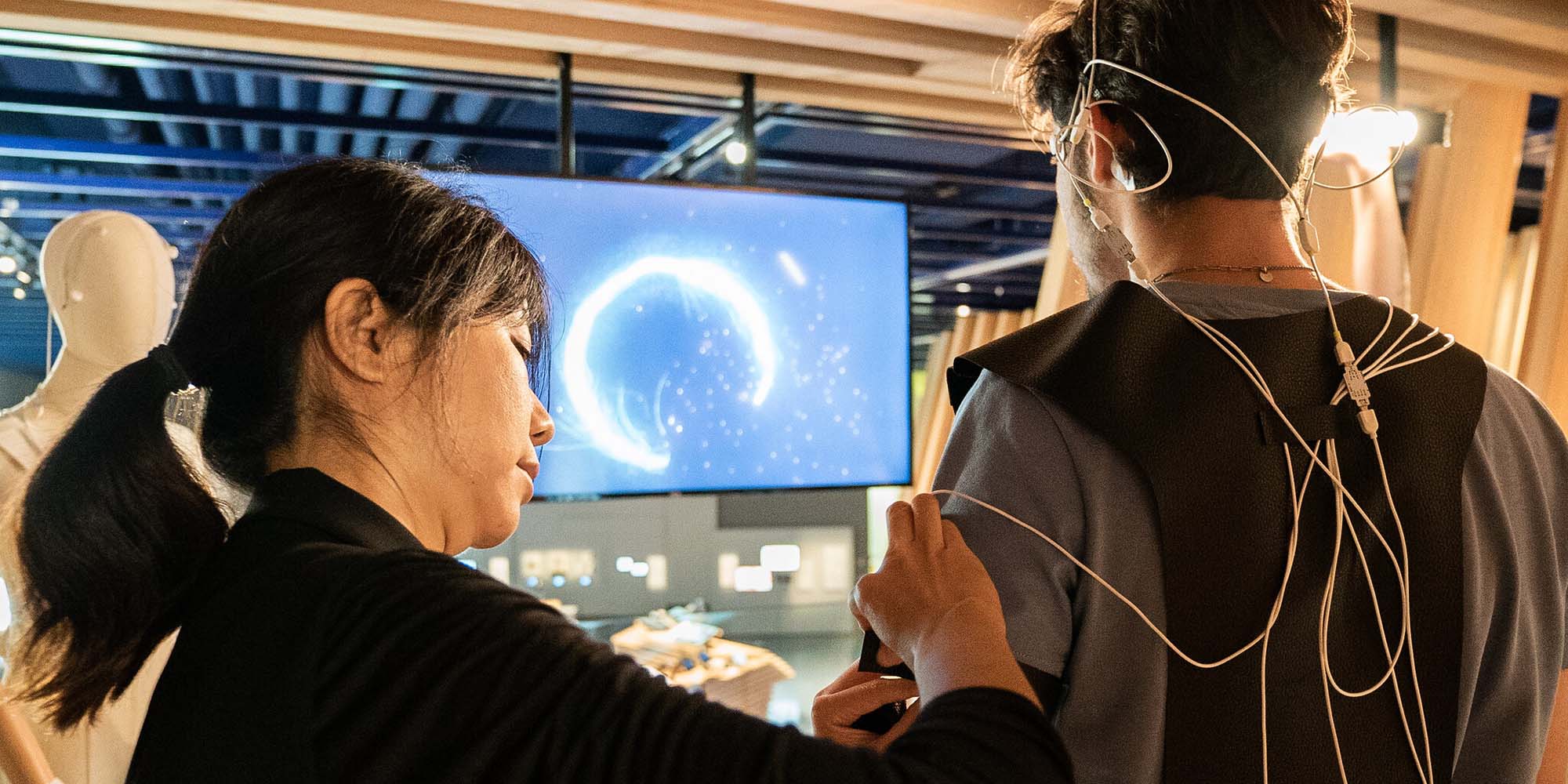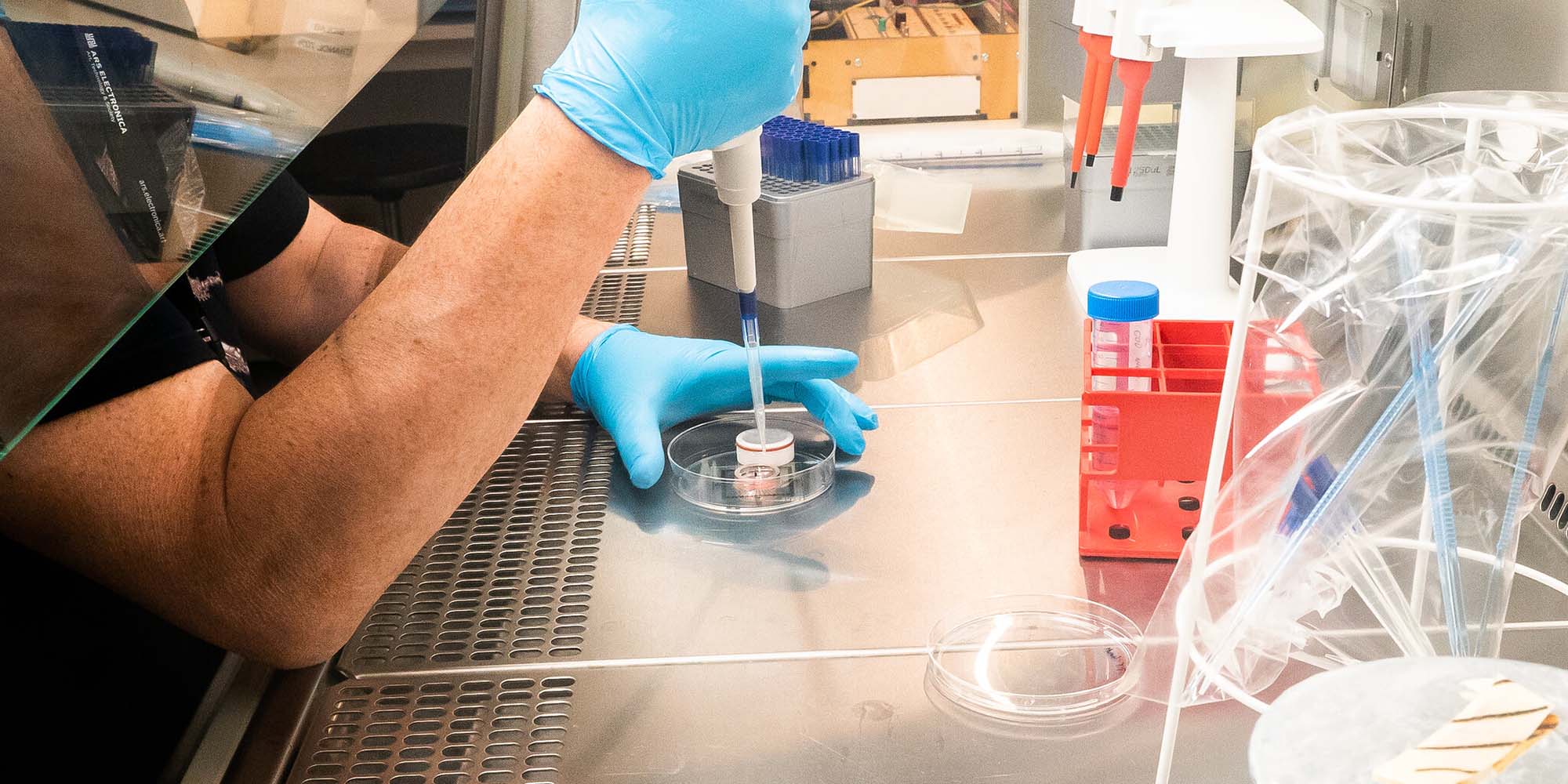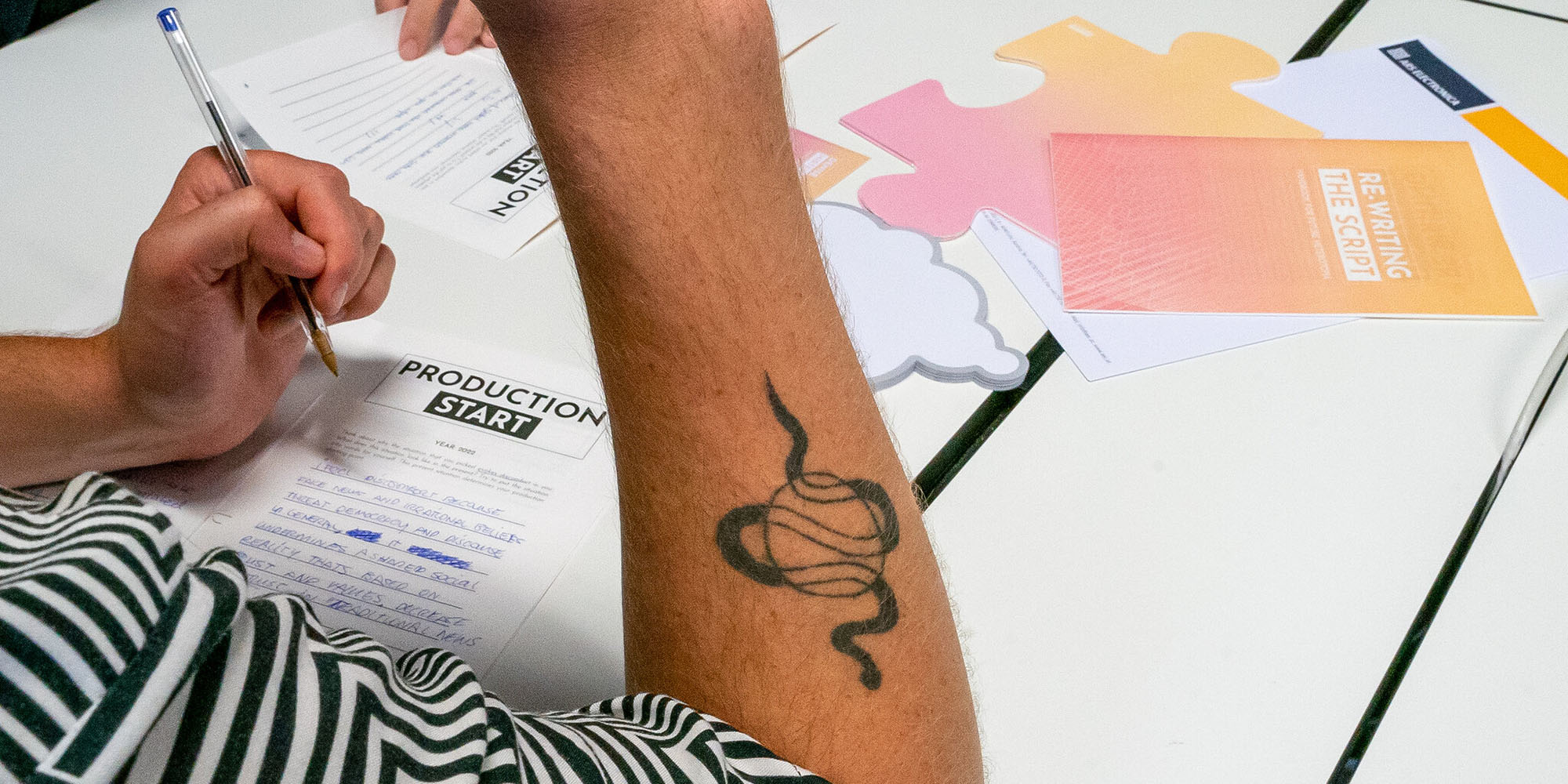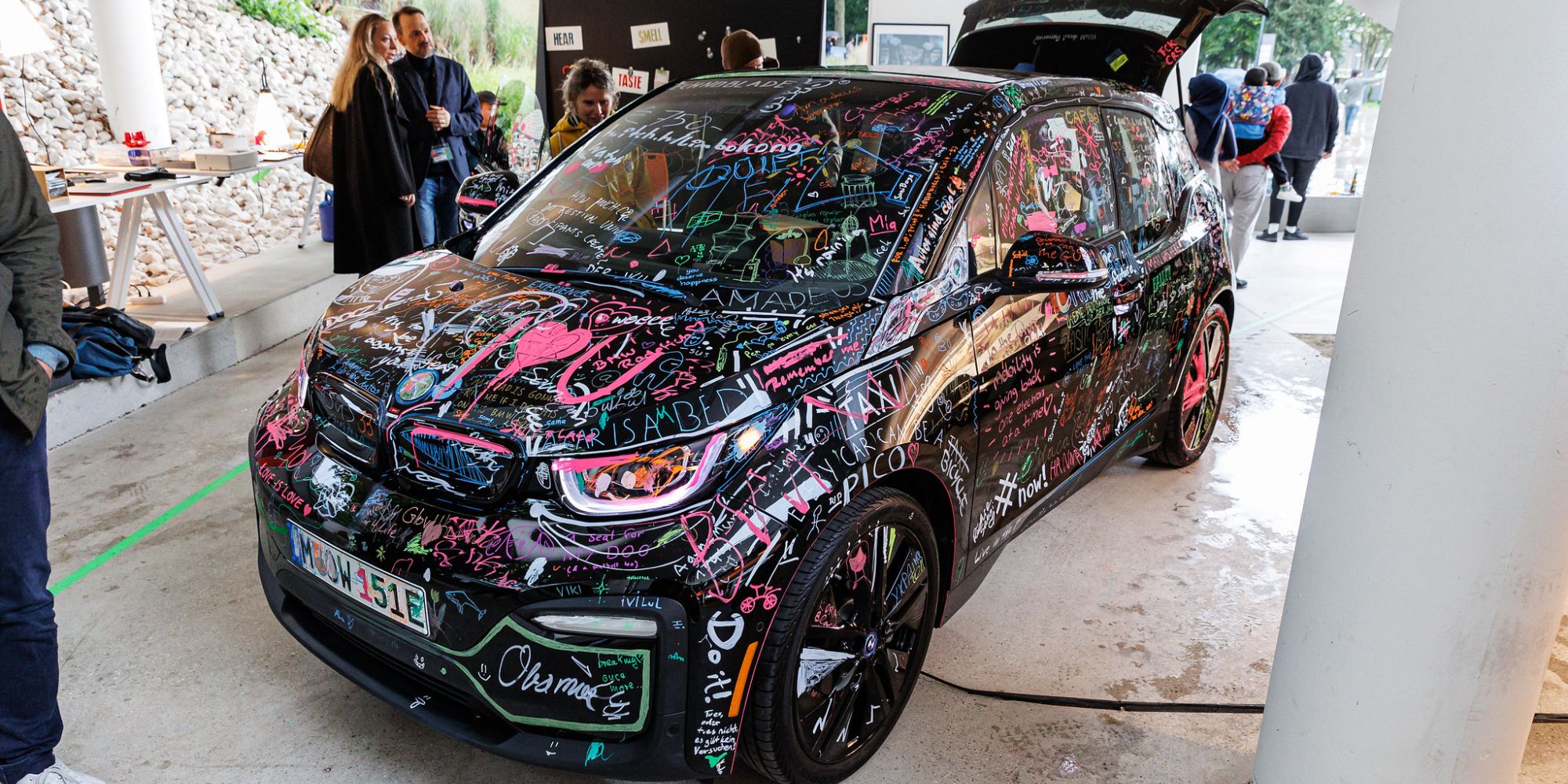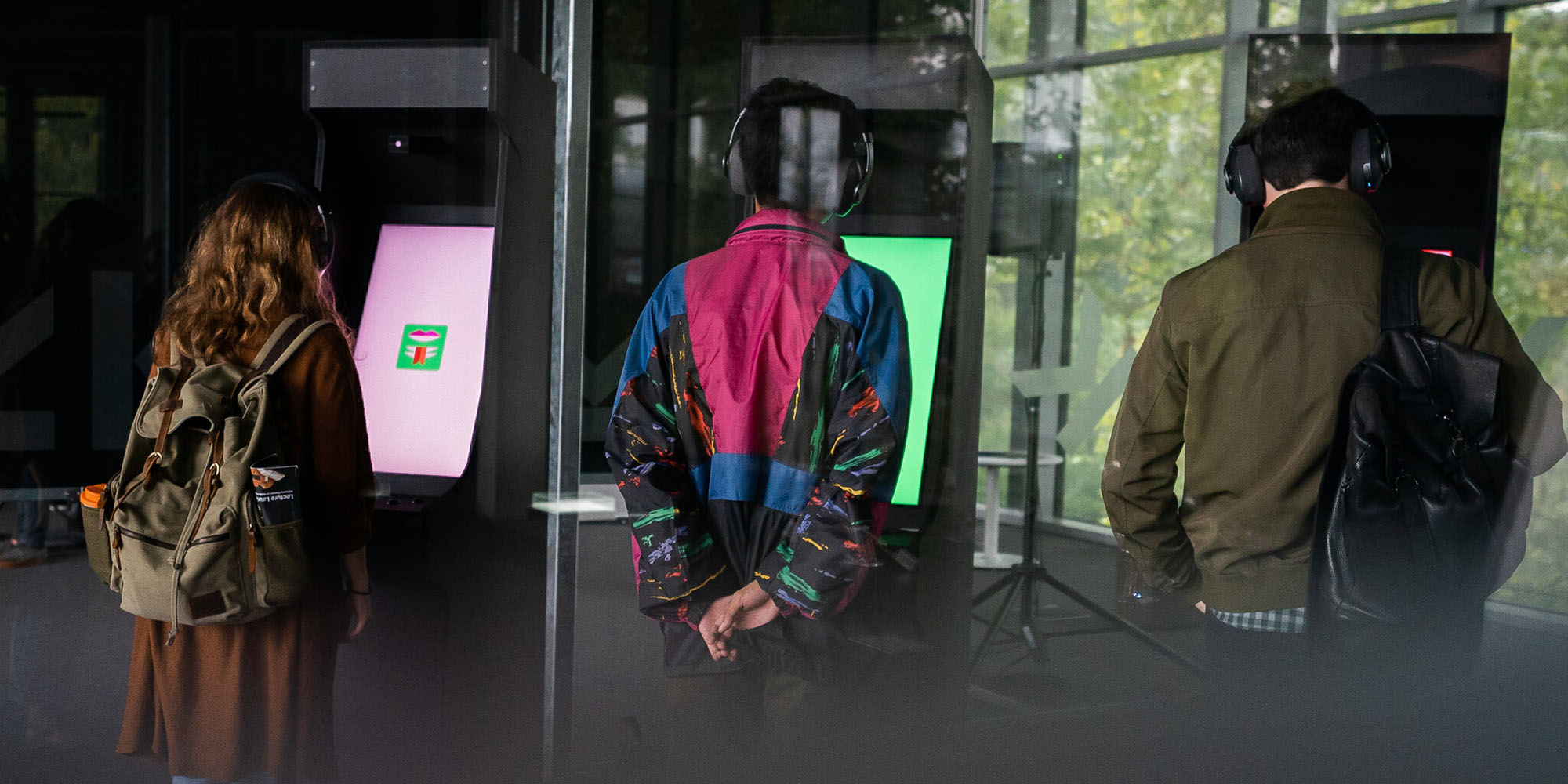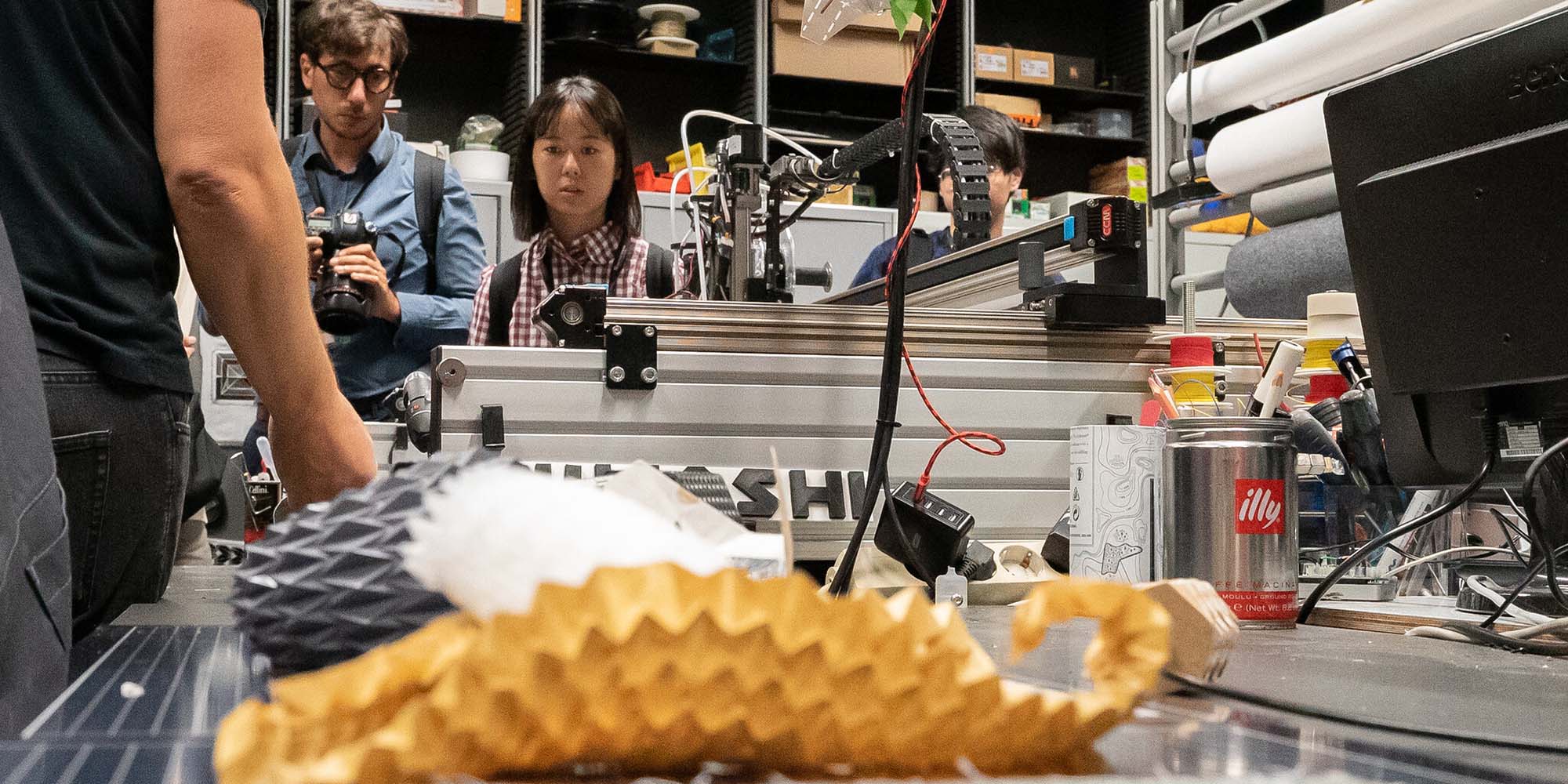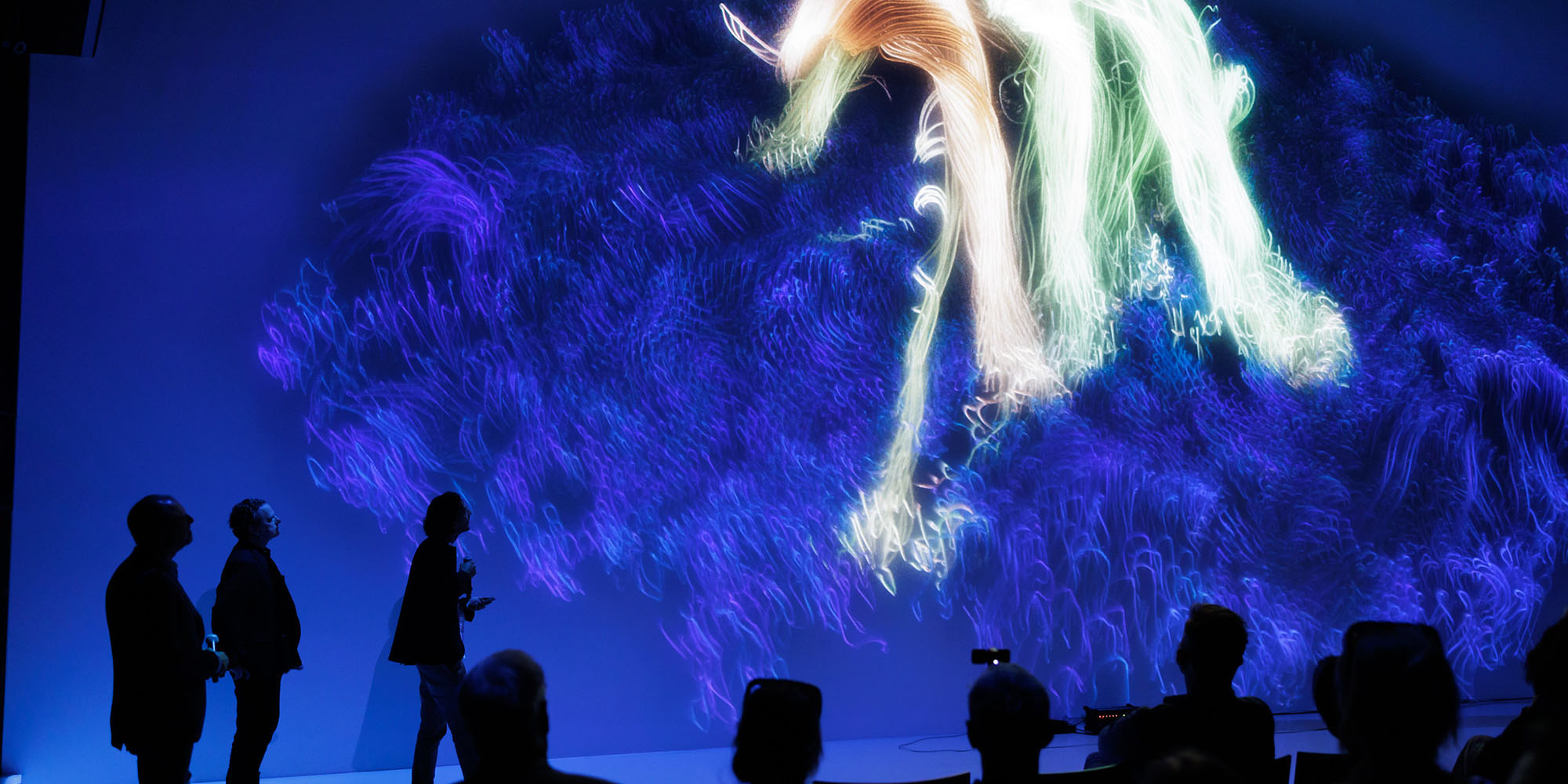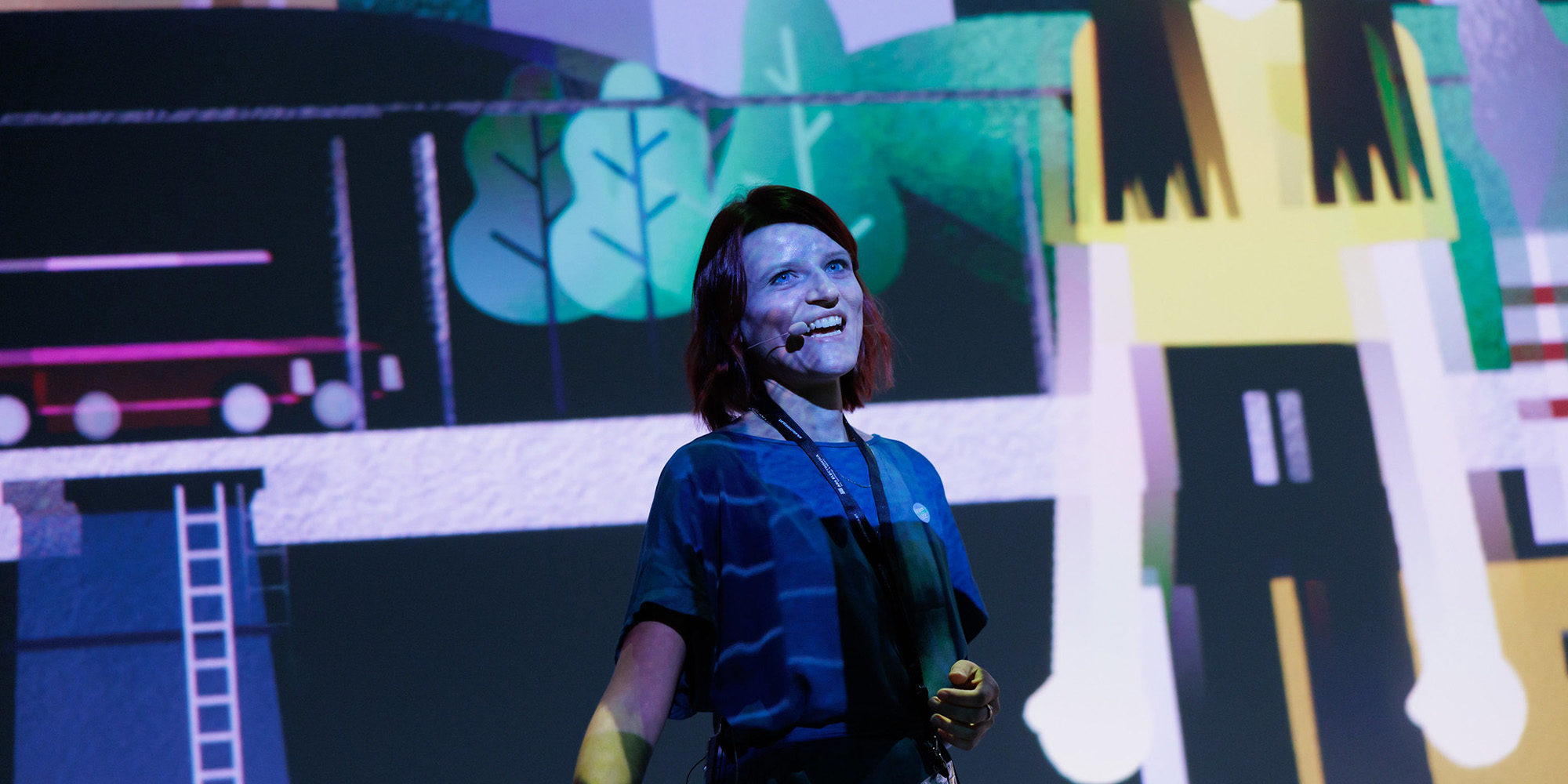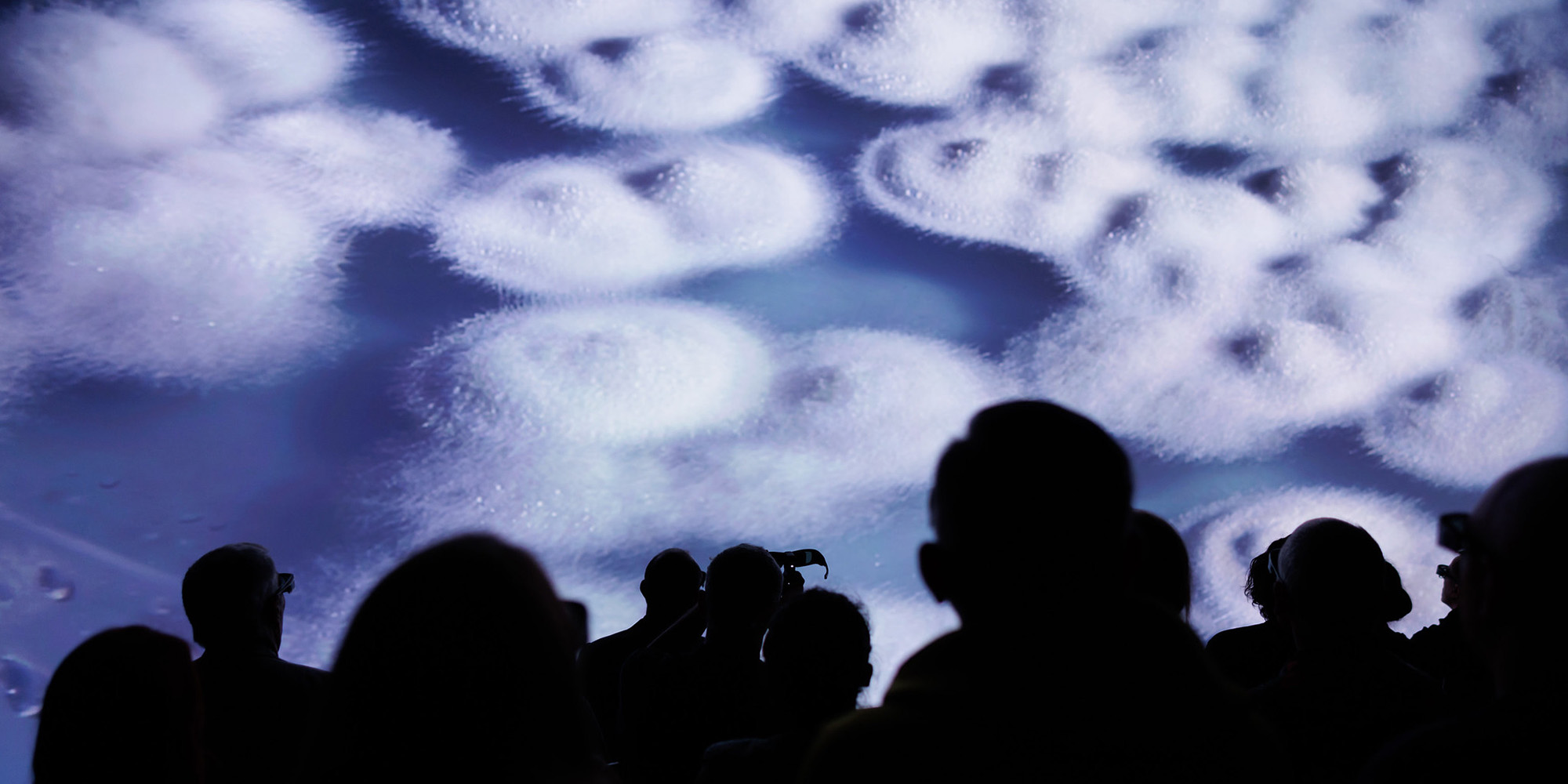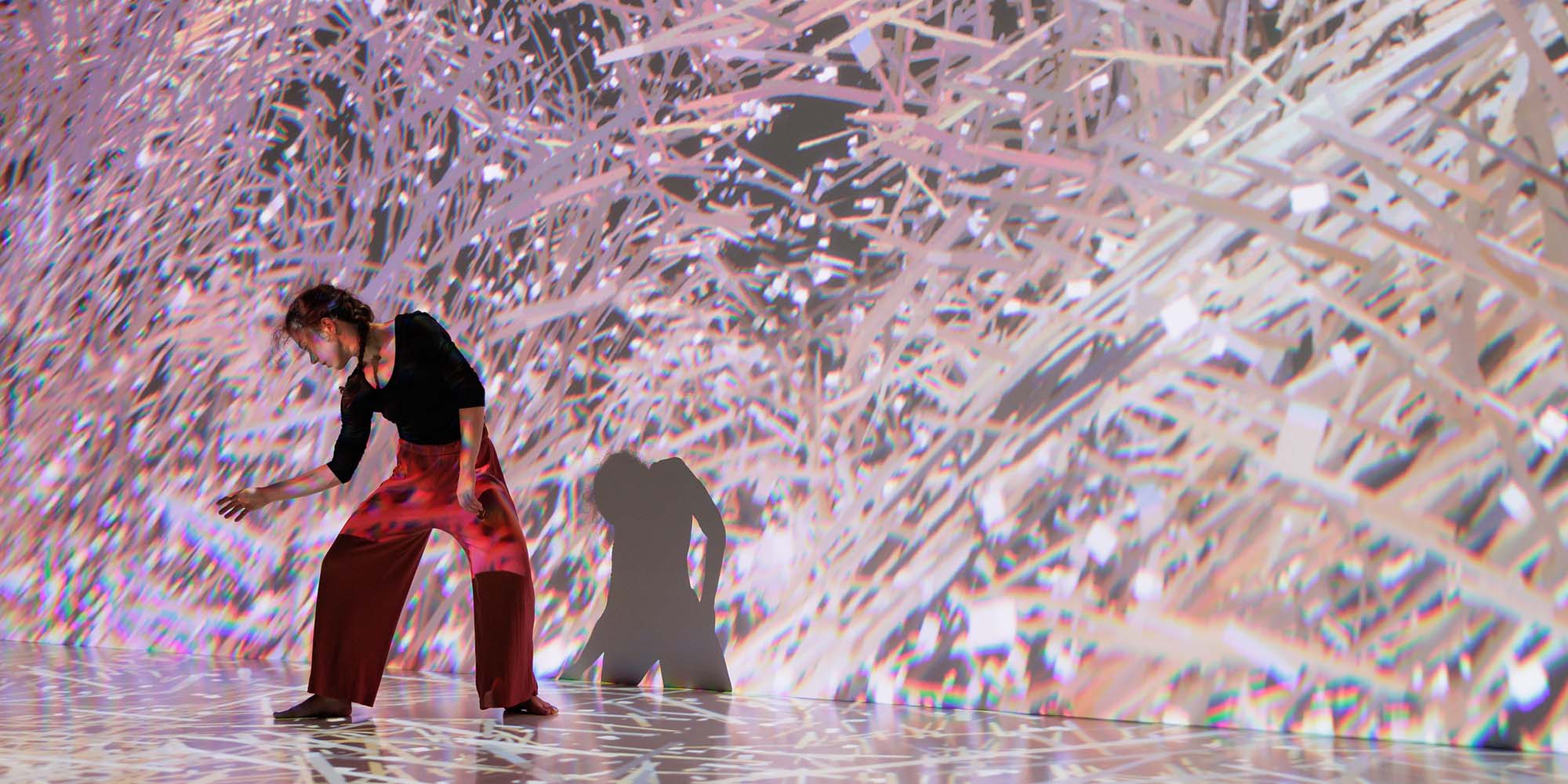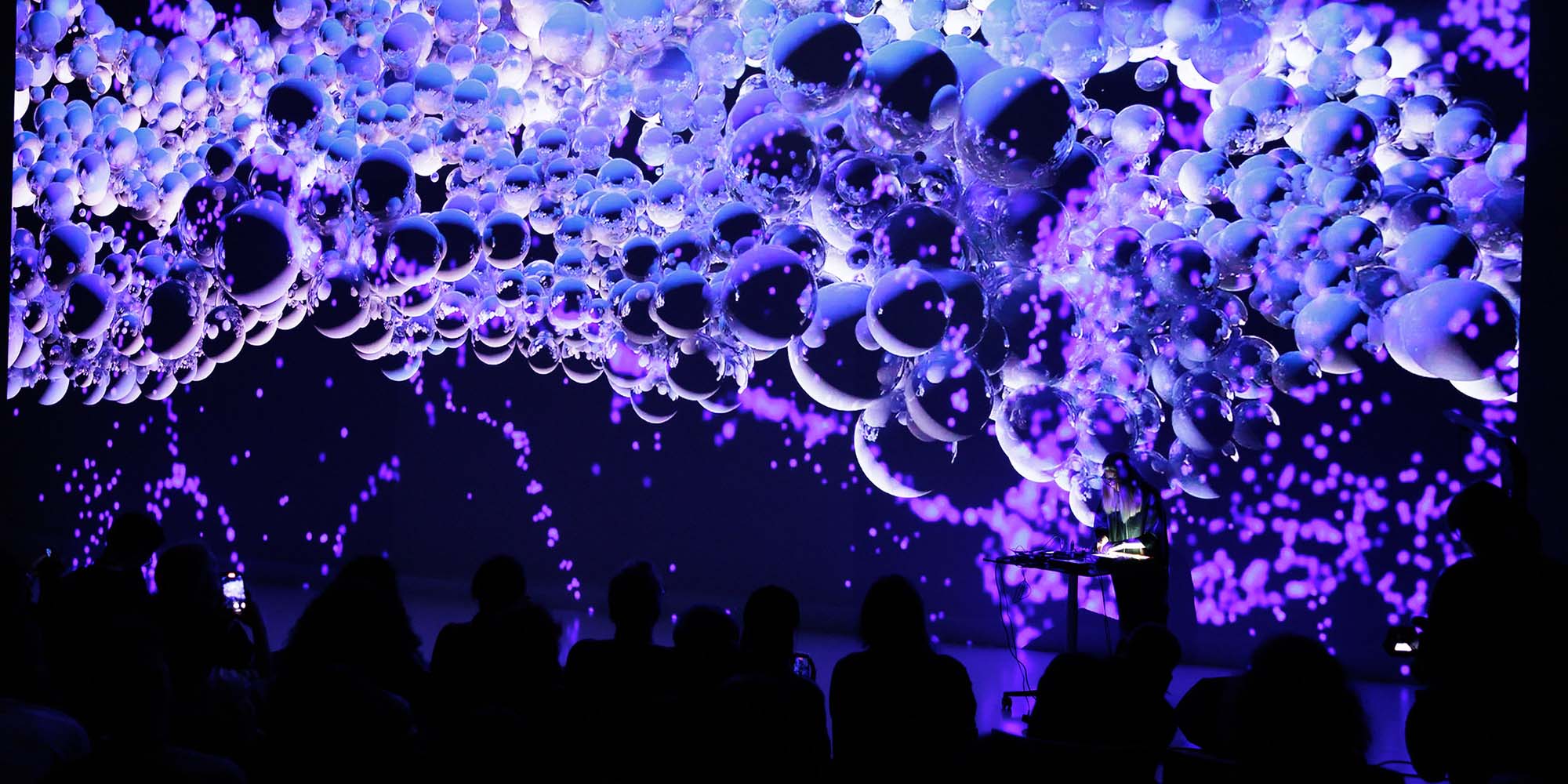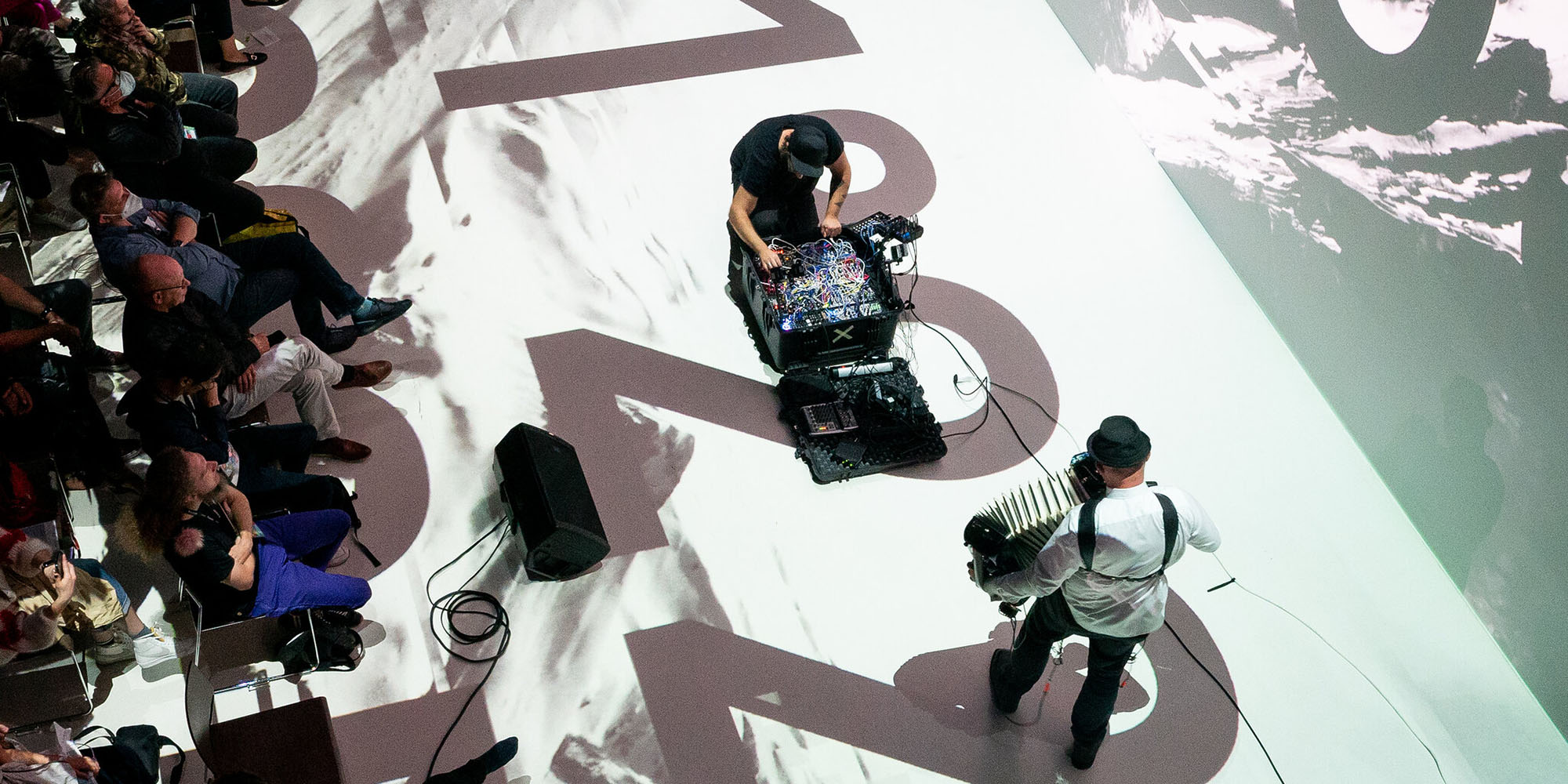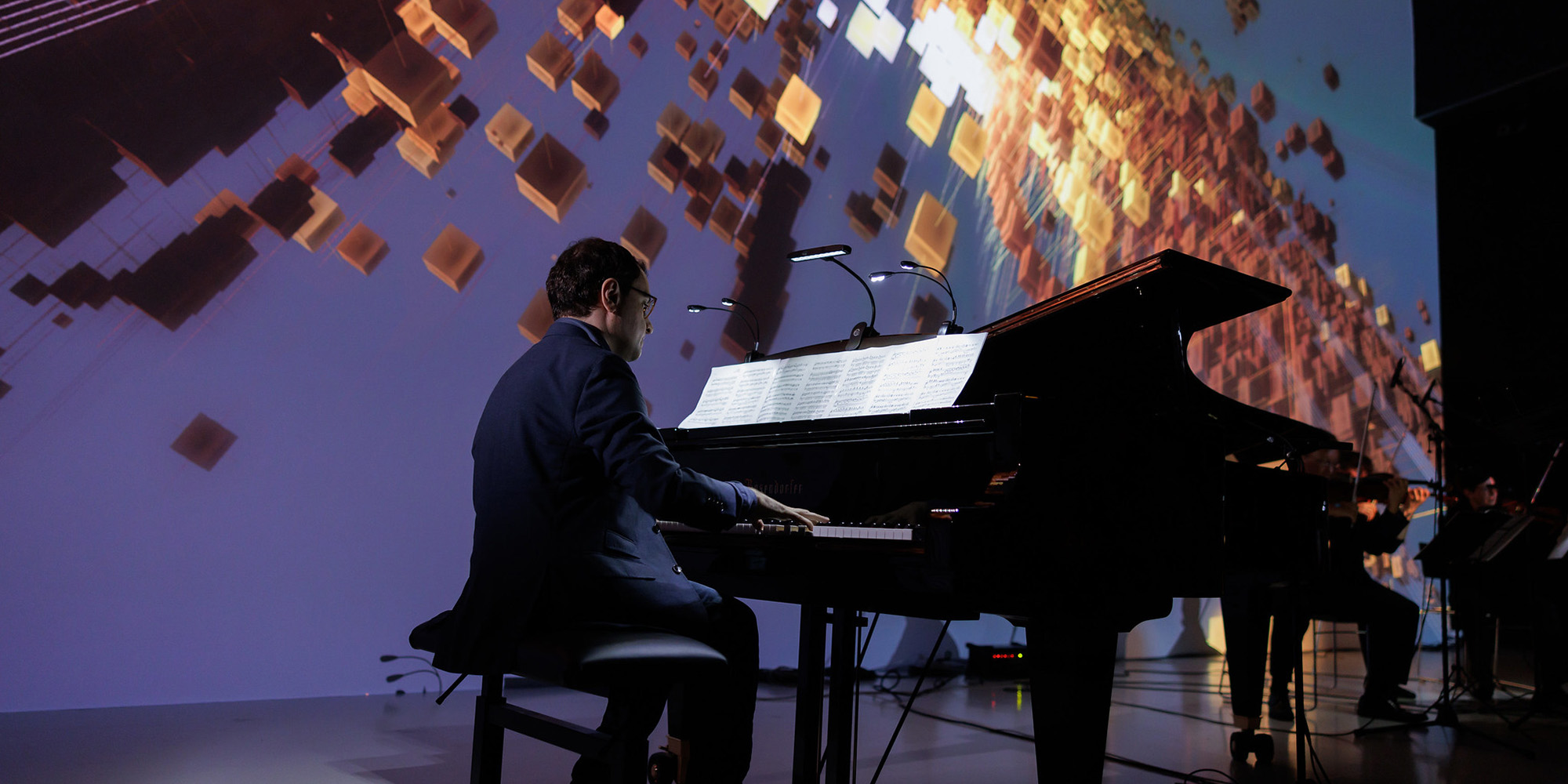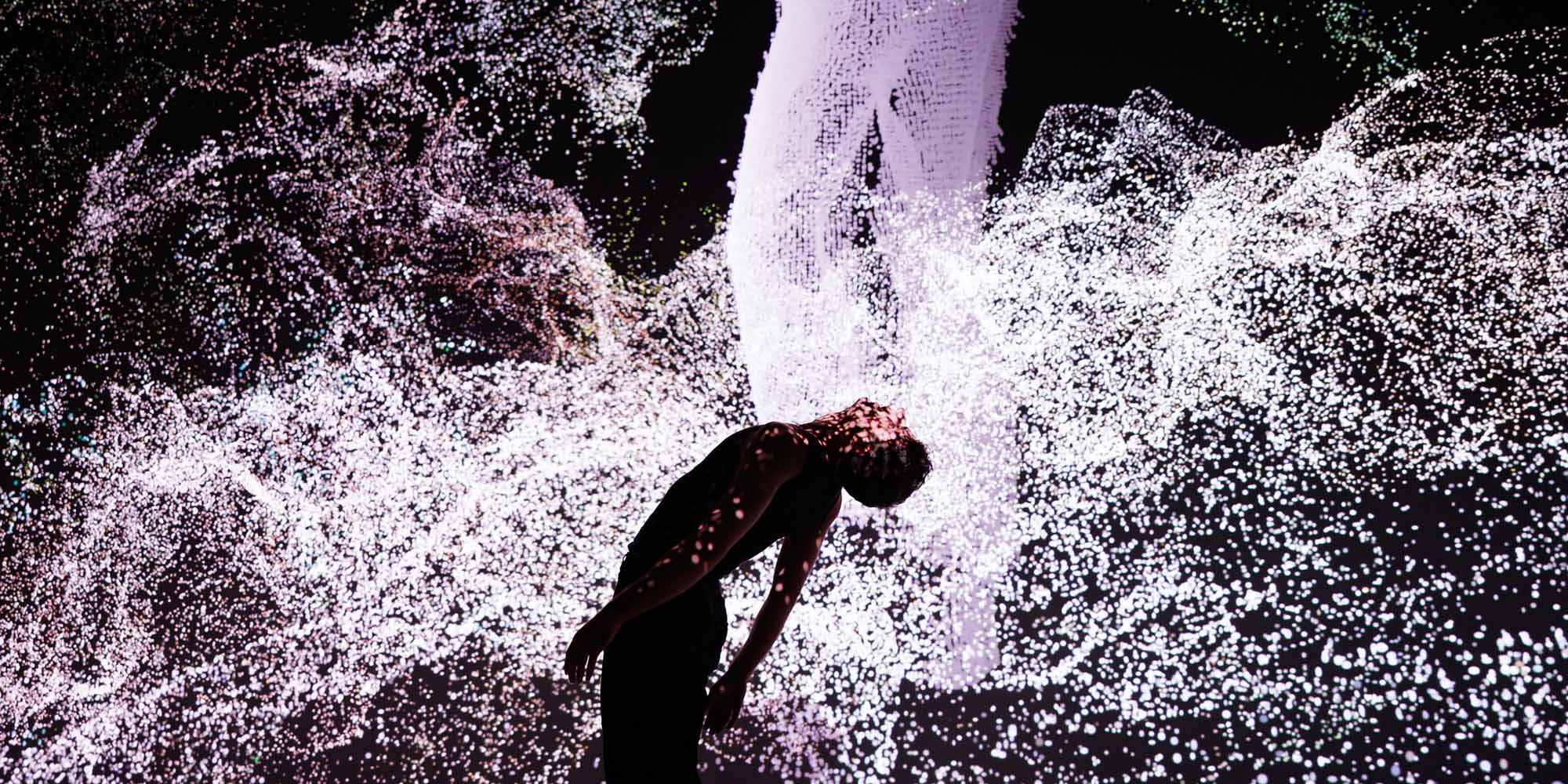In 2022, the Ars Electronica Futurelab once again organized a special “Open Futurelab” program for the general public during the Ars Electronica Festival: Futurelab Day on September 8, themed “Creative Resilience for a Planet B.”
Futurelab Day 2022 featured high-level discussions, presentations of the lab’s latest projects, a wide variety of workshops, and electrifying artistic performances. The title of Futurelab Day played on the festival motto “Welcome to Planet B – A different life is possible, but how?”
The basis of the theme of creative resilience was the question: How can all of us contribute to transforming resilience from an individual to a societal concept? How can we work collectively towards a better future, a Planet B? And what role can creativity, art and technology play? These questions and more were discussed with the international festival audience as well as friends and guests of the lab – a special opportunity for the public, art and industry to enter into a broad, open dialogue with each other. This included the opportunity to experience the Futurelab’s latest projects:
Discussions about and for the future
The “Morning Inspirations” session kicked things off: here, an exciting mix of artists, activists, researchers and industry participants discussed the topic of “Creative Resilience for a Planet B”. The Morning Inspirations participants were Sigrid Bürstmayr (AT), Rashin Fahandej (US/IR), Adrian van Hooydonk (NL) and Jung Hsu (TW), Tom Lamberty (DE), Yuima Nakazato (JP), Marcus Neustetter (ZA/AT) and Natalia Rivera (CO). Through very unique perspectives, they agreed that humans need to join forces. Society’s target group of the future needs to be the global community. They pointed out how art is not only a piece of work, but rather a process. Art is created, perceived, experienced on many levels. Art can be a language to communicate a sense of communal, resilient humanity for saving this planet and creating a worthwhile worldwide planet B.
Afterwards came a packed afternoon with the diverse “Afternoon Experiences,” consisting of workshops, presentations of the Futurelab’s latest work, and multiple discussion formats with distinguished guests.
One of the highlights: Ernst Ulrich von Weizsäcker’s (DE) keynote address on “From the Limits of Growth to Wellbeing for All within Planetary Boundaries.” Von Weizsäcker confronted the audience with the dark prognosis for our planet and humanity if we continue the current path. His talk, as always in a humorous manner, then focused on concrete suggestions for international approaches of a new way. For that, he concluded, we need balance, and listed proposals such as the balance between humans and nature, or economic equity and incentives for achievements.
In addition, Till Kellerhoff (DE), Program Director of the Club of Rome and Manager of the Earth4All Initiative, spoke. Curated by the Club of Rome, the discussion “Earth 4 All – A Survival Guide for Humanity” followed, led by Friedrich Hinterberger (AT), with Jayati Ghosh (IN), Astrid Rössler (AT) and Maria Langsenlehner (DE). The Club of Rome stated that we must not only talk about human rights or human freedom, but even more about human duties. We as a global community have a responsibility to the next generations, to this planet. The participants discussed how inequality is at the heart of the problem, and that it is all about prioritizing public common interests to make a turnaround together for the wellbeing of this world.
There was also a lively discussion on “Media of the Future,” with Rashin Fahandej (US/IR), Sarah Kriesche (AT), Oishi Nobuyuki (JP), Joanna Wright (GB), and Takeshi Yamada (JP). The question of the “Humanity of the Future” was also on the agenda, where Guy Ben-Ary (AU), Kasia Chmielinski (US), Hiroshi Ishiguro (JP), Akane Kikuchi (JP), Martina Mara (AT), Sarah Newman (US), and Nathan John Thompson (AU) shared visions. On the theme of “Work of the Future,” Gianpaolo Barozzi (IT), Victoria Čaić (DE/AT), Mary Lizabeth Lu (PH) and Marcus Neustetter (ZA/AT) exchanged visions with the audience. The participants formulated how work could be more than just the assurance of survival and the fulfilment of individual development but for a common purpose, to make a difference, without just feeding the system. The audience talked about cultural change for individuals and corporations, about the precious impact of education and the courage to speak out.
Innovations and Workshops
Brand-new projects from the Ars Electronica Futurelab were simultaneously presented and workshops held at the Ars Electronica Center. Among the projects presented in Deep Space 8K was “Dataspace: Global impacts of the Russian war on Ukraine,” created in collaboration with the Innovation Lab of the Japanese media company Nikkei-a kind of three-dimensional Zen garden of information about the war’s global impact. Also shown in the 3D experience space was the final presentation of the multi-year project “CoBot”, which explored the collaboration between humans and robots with numerous partners such as the JKU.
The new work “Life Ink” by Futurelab and technology company Wacom was also presented – here, for the first time, one’s own creativity is visualized using body data, from full concentration to creative spark. Festival visitors were able to try out “Life Ink” for themselves, as well as “Bio Ink” and “Space Ink”. The former allows messages to be designed from ink with microorganisms, while the latter uses drones to create three-dimensional paintings from light. The “Revivification” workshop also featured an artistic collaboration on the topic of in vitro intelligence. “Re-Writing the Script – A New Relationship to Finitude”, on the other hand, enabled participants to gain a new perspective on their own lives by means of the Art Thinking method. In Kepler’s Gardens there were also workshops on “Mobility of the Future” together with partner BMW and on “Neuro-Rights” by Artist in Residence Roel Heremans.
Futurelab Night 2022
The Futurelab Day 2022 was concluded by the “Night Performances”, where the latest projects of the Lab were presented as well as diverse artistic performances with members and friends of the Lab. The internal Futurelab projects “SonoSynthesis”, where microorganisms and artificial intelligence create music together, and a children’s book on the Deep Space programme “Welcome to Planet B” were presented for the first time. The program has been educating people about climate protection measures since spring in Deep Space 8K and was also developed by the Futurelab.
Also presented were the projects “WebExpression”, that visualizes the worldwide data interconnections of Cisco’s international corporate culture, as well as “Dataspace” and “Life Ink”. The latter was impressively used in a performance by pianist Maki Namekawa. The music continued with “Man-Machine Music”: The piece was composed for the Ingolstadt Science Congress 2022 with the Futurelab AI Ricercar and premiered with the Georgian Chamber Orchestra; now it was presented – in a new arrangement for piano and string quartet.
This was followed by \a.ni.i.la.sjɔ̃\ [annihilation] – a dystopia about the extinction of life through technology, expressed through dance, video and electronic music. Polychoros used the duet of a human dancer with a virtual dancer to show five stages of needs on the way to self-realisation. Music made from washed-up plastic waste followed, with Plasticphonia, where the movement of plastic parts was combined to create an electro-acoustic symphony.
As in the previous year, the Night Performances and thus also the Futurelab Day concluded with Accordion Noise from the project 11°22’4″142°35’5″ – the artistic exploration of the deepest point on earth, the Mariana Trench.
Further articles and videos to the Futurelab Day 2022 can be found on the Ars Electronica Blog:
- How to create “Media of the Future”
- Earth4All: It is not too late
- Diverse, fresh, exciting: Futurelab Day 2022
- Data Telling Story
- On four wheels into the future?
- Directors Talk: Facing crises creatively
- Life Ink: On the trail of creativity
- Night Performances: Experience the night anew
- Futurelab Day: Creative Resilience for Planet B
- Expedition into the realm of ideas
Credits
Ars Electronica Futurelab: Friedrich Bachinger, Florian Berger, Patrick Berger, Alexandre Bizri, Kerstin Blätterbinder, Birgit Cakir, Arno Deutschbauer, Manuel Dobusch, Stephan Feichter, Peter Freudling, Matthew Gardiner, Bernadette Geißler, Barbara Habringer, Peter Haider, Roland Haring, Denise Hirtenfelder, Horst Hörtner, Peter Holzkorn, Susanne Kiesenhofer, Anna Kuthan, Maria Mayr, Stefan Mittlböck-Jungwirth-Fohringer, Otto Naderer, Nicolas Naveau, Ali Nikrang, Anna Weiss, Hideaki Ogawa, Johannes Pöll, Daniel Rammer, Erwin Reitböck, Raphael Schaumburg-Lippe, Simon Schmid, Yoko Shimizu, Georgios Tsampounaris
